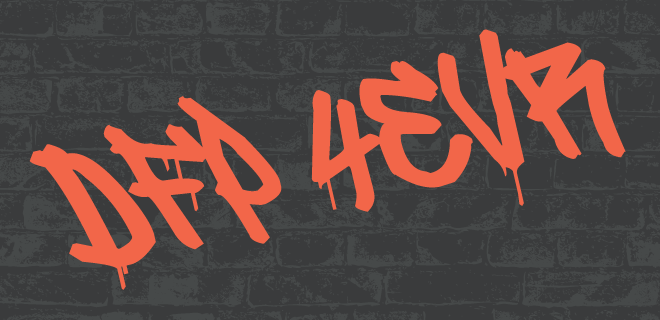
“Death of DoubleClick, Birth of a Monster?” screamed my headline when DFP and AdX officially merged to become Google Ad Manager (which I will refer to as GAM no matter what because I love Jazz Age slang—F. Scott Fitzgerald could be inspired by thousands of Gatsbys in digital advertising).
I was—and still am—concerned that this move strengthens Google’s stranglehold on supply-side ad delivery and discourages demand-partner competition that… could make publishers more revenue. Shouldn’t that be to priority for an ad server—ensuring clients aren’t leaving money on the table?
From what I heard at last week’s Publisher Forum in Austin, GAM ain’t a monster, but it’s a bit more of a feral beast than many publishers were expecting. Despite a slow, deliberate rollout, a breakout session focused on working with GAM showed that many publishers were facing similar, sometimes surprising hangups. The biggest: inefficiencies in reporting.
Stumbling Blocks
This echoes what I heard a few months ago, and still kinda blows my mind. If the exchange and ad server are now virtually one, why are publishers saying they have more trouble compiling reports? A chief culprit seems to be an unwieldy interface that forces users to hunt down variables in multiple locations.
There was a desire for overall better visibility in programmatic. Setting rules is difficult and publishers wished they could group inventory in bundles rather than at the ad-unit level. They also commented that the native user interface is very manual.
Programmatic deals have proven quite challenging. Deals are being reported as gross, not net, and troubleshooting with regards to data has been inaccurate. The ability to adjust priority settings in deals seems non-existent, and some publishers were irritated by the requirement to actually build products to go with deals.
But the session wasn’t all complaints: publishers were impressed with the overlap-key-value function that enabled cross-referencing and layering with predefined key values. In addition, the key value reporting is quite beneficial, even if limited. And the new screenshot tool, which details line item and inventory tied to ad, works well… Under perfect circumstances.
Fostering Change
Overall, though, the disenchantment was palpable over the fact Google cares a lot more about itself and its own product rather than the wellbeing—or welfare—of its publisher clients. It’s well known that publisher services are not raking in the monster cash for Big G, and the supply side aren’t quite opening their purses as wide as the buy side.
However, one publisher representative had good advice to take advantage of Google’s self-interest: when providing feedback, make it actionable items tied directly to the performance of Google’s systems. Sure, you’re helping me out, GAM account manager, but you’re really driving more revenue. This will require some Tom-Sawyer-worthy cleverness, but ultimately move addressing your challenges a little closer
There’s also a lot to be said for strength in numbers. I’m hoping to help assemble a unified front for presenting challenges (and possible fixes) to Google about GAM. I plan to be a modern-day Martin Luther and nail a printout of these theses on the door of Google’s Chelsea offices.
HA! You all know I think physical media is obsolete. I would like to present agreed-upon issues to my Google contacts and start a dialogue. If you’d like to join in, hit me up at Gavin at AdMonsters.com—the more the merrier. And I won’t take credit for this idea—I’m just trying to serve as an information conduit and make something good happen for the industry.
Why Wasn’t Google at the PubForum?
I’m often asked why Google isn’t at the Publisher Forum, and this recent iteration in Austin was no exception. It’s a very valid question—Why doesn’t the company with the most widely used ad server come to a gathering of those most intimate with its product?
AdMonsters has pretty strict rules about who can attend and who must sponsor PubForums. Generally, anyone who manages or is involved in monetization or revenue for owned-and-operated digital media properties (e.g., websites, apps, newsletters) is allowed to attend; we also let agency people on the opposite side of the coin come.
Providers of tech and services can only attend, have access to attendees, and potentially speak if they choose to sponsor. And sponsorship is how we’re able to assemble the publisher revenue people in the trenches for three-and-a-half days of intense discussion, learning, networking, and (gasp) fun at a relatively low price point.
There are exceptions, and as a team we’ve made hard decisions over the years about the people that can attend, some of which we later reversed. This gets harder every year as more companies we would traditionally label publishers start offering products and services to their peers. Still, this general guideline has helped us put together 46 highly valuable U.S. Publisher Forums over nearly 20 years.
Google was actually AdMonsters’ top sponsor for a long time, and always took top sponsor billing at Publisher Forums when I joined AdMonsters seven years ago. Google led sponsored breakout sessions at Publisher Forums, and some representatives were quite candid about DFP challenges with attendees. At the same time, “that’s on the roadmap” quickly became a running joke that we still reference today.
Several years ago, Google decided that they would no longer sponsor our events, and if we wanted them to attend or speak, we should invite them. That’s an exception we could not make, because it’s horrendously unfair to all the other ad-tech companies and service providers who sponsor.
Those companies are out there hustling to make a dent in this space where Google already has a huge advantage—I’ll argue AdMonsters doesn’t need to give Big G any more perks. We shouldn’t roll out a red carpet for Google just because they dominate the space while forcing everyone else to pay at the door.
If Google would like to attend or even speak, I’m happy to make the proper introductions. PubForum Miami is March 10-13, 2019, and I hear there are some decent packages available.